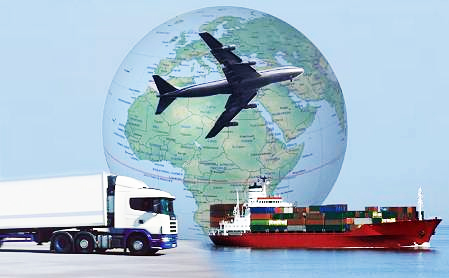Under Bills for Collection method of international trade payments, since a bank acts as an intermediary, the seller does not have to depend on the buyer only. But here the bank’s role is only in the process of routing the documents of transport/title along with other documents. The seller draws documents in terms of the contract that it has entered into with the buyer, hands over those documents to the bank with clear instructions as to the mode of collection- whether goods are to be delivered against payment or against acceptance of documents and a bill of exchange on the basis of which he can get payment after due date of exchange and if for instance that bill is not paid for some reason the seller can fall back on the Bill of Exchange law and can take action under that law to get payment.… Read the rest
International Business Basics
Regulatory Documents used in Export/Import Documentation
Regulatory documents are otherwise called as Official documents, because most of these documents are required for compliance of regulations of either the exporter’s country or the importer’s country.
1. Export Declaration Forms
As per Indian Exchange Control Regulations, details of all goods (except certain exempted categories) by whatever means exported from India, are required to be declared on certain specified forms. These forms are known as Export Declaration Forms. These forms are evolved by the Reserve Bank of India to ensure that the value of all the goods exported from India is declared and the foreign exchange due there is repatriated to India.
Transport Documents used in International Trade
In international trade, the goods move from the warehouse of the exporter to the warehouse of the importer. The goods may move by land water or air or a combination of one or more of these modes. In international trade, such transport documents are more in number and it is very important to know the significance of each type of document and its nomenclature, etc. One of the important aspects to be remembered with regard to any transport document is that it must show the name of the carrier.
1. Bill of Lading
This is a transport document, which represents the movement of goods by water.
Note Issuance Facility (NIF)
Note Issuance Facility (NIF) offers a good mix of capital market and syndicated loan operations. Note Issuance Facility is a usual medium term, floating rate, funding instrument – it is a long-term position for the investor who has shifted their performance for short term in view of the country risks of some less developed countries. NIF is a medium term arrangement under which borrowers can issue short term papers (called a Euro note) with the underwriting support of the commercial banks. The different names given to these main facilities with some variation in its terms are revolving underwriting facility(RUF), short-term note issuance facility (SNIP), transferable revolving underwriting facility (TRUF) and Note Purchase Facility (NPF). … Read the rest
Country Risk in International Investments
Country risk is defined as the exposure to a loss in cross-border lending caused by events in a particular country. These events must be, at least to some extent, under the control of the government of that country; they are definitely not under the control of an enterprise or individual.
All cross-border lending in a country – whether to the government, a bank, a private enterprise or an individual – is exposed to country risk. Country risk is thus a broader concept than sovereign risk, which is the risk of lending to the government of a sovereign nation. Further, only events that are, at least to some extent, under the control of the government, can lead to the materialization of country risk.
Negotiations between Host Governments and MNEs
Home and host countries evaluate business propositions of Multinational Enterprises (MNEs) from their points of view. The evaluation relates to size, place, product, price, process, people and partnership related issues. Negotiations are take place between MNEs and host government whenever consensus is not reached on major issues. Here comes the importance of business-government relationships. The business negotiations and diplomacy between companies and governments determine the terms of international business operations.
MNEs attitude to Governmental Stipulations
Multinational Enterprises (MNEs) attitude to Governmental Stipulations may be one of complying. This is highly positive. In a hierarchical view of governmental authority, companies accept regulations as ‘givens’, and MNEs comply with.… Read the rest

